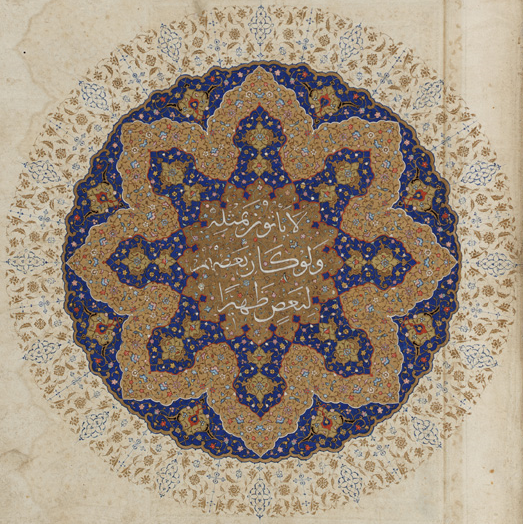This is an installment of the Religious Fundamentalism and Sexuality Project. You can read the full list of questions here and the posting plan here. The first six participants whose stories I’ll be posting are Melissa and Haley, Lina and V, Latebloomer and Katy-Anne.
Romantic Relationships
3. How did your fundamentalist upbringing or training impact your own sexual identity and/or experience of sex? (See, for example, Libby Anne’s post about her beliefs about sexual compatibility changing after marriage.)
Melissa and Haley
Melissa:
I came into marriage under the impression that sex was this magic cure-all. Having trouble relating to your spouse? Have sex. Is your husband abusive? Have sex with him. Is your husband cheating on your monogomous relationship? Have more sex with him to get him back. Never deny your husband sex, because that would be risking his sexual needs leading him into pornography or to another woman. I even promised myself that I would never say no to a sexual advance from my husband, no matter how I was feeling and regardless of whether I wanted sex or not. Sexual fulfillment wasn’t important for women, and the more sex you had the more your odds went up of having better sex anyway.
In reality, I experienced sex as a very nice thing, but it was not a magic cure-all. When my spouse wasn’t really interested in sex, I worried that there was something wrong with us, or that maybe I wasn’t attractive enough. When my spouse was interested in sex, it was sometimes frustrating to try and force myself to get into it if I was not feeling up to it at all. We both tried very hard to love each other, but we were restricted by the gender perceptions and roles, as well as the religious sexual rules we believed in. Once my spouse came out and we began wrestling with all of the questions about gender and sex, we began to experience a much more connective relationship in the bedroom. Talking about what we enjoyed and what we liked for the first time instead of adhering to pre-determined rules in the bedroom, made a HUGE difference.
Haley:
It made sex very difficult. My natural sexual interest and relationship with my body were all condemned. I mistakenly thought I had to pretend to be someone I wasn’t to be acceptable to God and to others. It is so funny that fundamenalists call LGBT people unnatural, acting like a straight male felt completely unnatural to me.
Lina and V
Lina:
I just have to laugh at this question. Imagine two girls, one who’s never dated and one who’s only dated (and made out with) boys. They have a rudimentary knowledge of traditional intercourse. Yet now they want each other. Kissing we figured out quickly, but anything after that involved lots of laughter and/or awkwardness. We named ourselves “above the waist” lesbians for the first few months, because vaginas were scary. So yes, there was definitely some sexual dysfunction due to upbringing!
The other big experience is actually a lack of doing. Nobody ever, ever told me that I might regret NOT doing something physically, and yet I very much do. A good friend as well as perpetual crush and I were saying goodbye before we each left for our respective colleges, and we came so very close to kissing. But we didn’t. We’ve talked about that in the years since, and both to a degree wish we had. Obviously, this isn’t focusing on the fact that having a first kiss right before leaving would have been thoroughly confusing for both of us; it’s just that looking back, we were the perfect relationship and the perfect moment.
V:
I had no idea I was gay until I fell in love with my best friend when I was 20. Being raised fundamentalist, it was never an option. Unlike so many LGBT folk who knew at a young age and remained tormented by the closet, I was just slightly baffled, but accepting. Of course I was straight, that’s what the bible tells me. I wasn’t baffled by my straightness, but by the questions that it caused. Why wasn’t I attracted to all the hot guys my friends were? Why did I feel awkward in the bra section of the department store where there were pictures of women in bras? Why were all the guys I was attracted to kind-hearted, emotional, and devoid of any muscle tone? And for that matter, why did most of the guys I had crushes on turn out to be gay? I was led astray by fundamentalism and oblivious to my deepest desires.
Latebloomer:
Spending my whole life focused on modesty caused me to dislike being naked or being looked at, and I had to fight to overcome that feeling for my own husband. Even though we made sexual progress during our dating relationship, I still felt residual self-consciousness about my body for a long time after getting married.
Katy-Anne:
After being sexually abused and being blamed or blown off, which seemed to be the only two responses I got, I tried hard not to have a sexual identity. Sex to me meant that a man was in control of me. So telling me that I had to submit to my husband about anything in marriage was very damaging to me because my brain has always connected submission with sex, and I’ve always viewed sex as somewhat of a power play. Which is why being a lesbian was somewhat appealing, because I felt that I was at least on an even playing field with a woman. On my honeymoon, sex hurt. Sex still hurts for me, and I think a lot of the hurt has to do with the fact that deep down, I believe sex has to hurt. I’ve never seen sex as intimacy; I’ve seen it as a power play where I must be subdued and ravaged.
Fundamentalism taught me that sex was not supposed to be enjoyable for a woman. Apparently I was supposed to feel “ravaged” or it wasn’t done right. I was taught that it was a wonderful plan that God had that a woman would only have children by properly submitting to her husband for sex. I was also taught that I was not to use birth control to prevent children, because that would be selfish. I was also taught that I was supposed to submit and give of myself to my husband but that I ought to be ashamed of myself if I found a way to enjoy it because good Christian women who know their place wouldn’t find being forced to submit enjoyable. I do want to say though that my husband has never raped me, even though we were both taught some crazy things, my husband always had the decency to take no for an answer on those times where I really didn’t feel like it.















